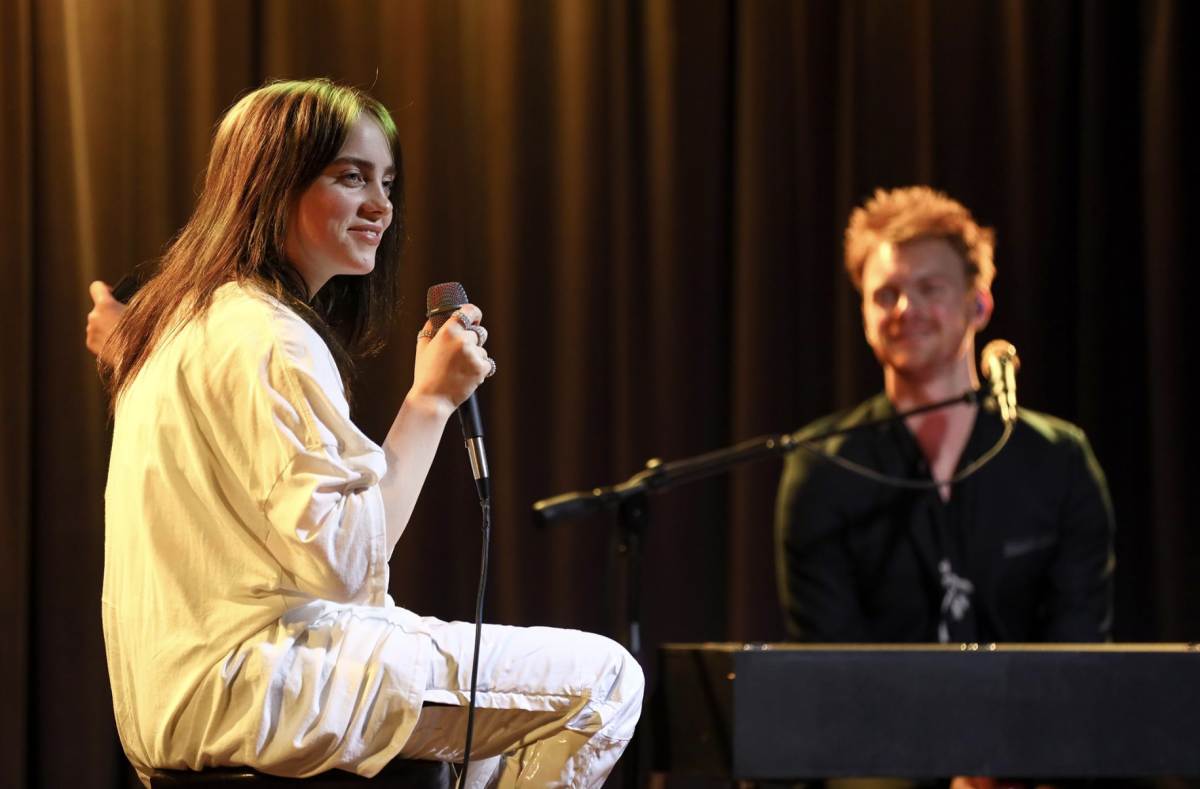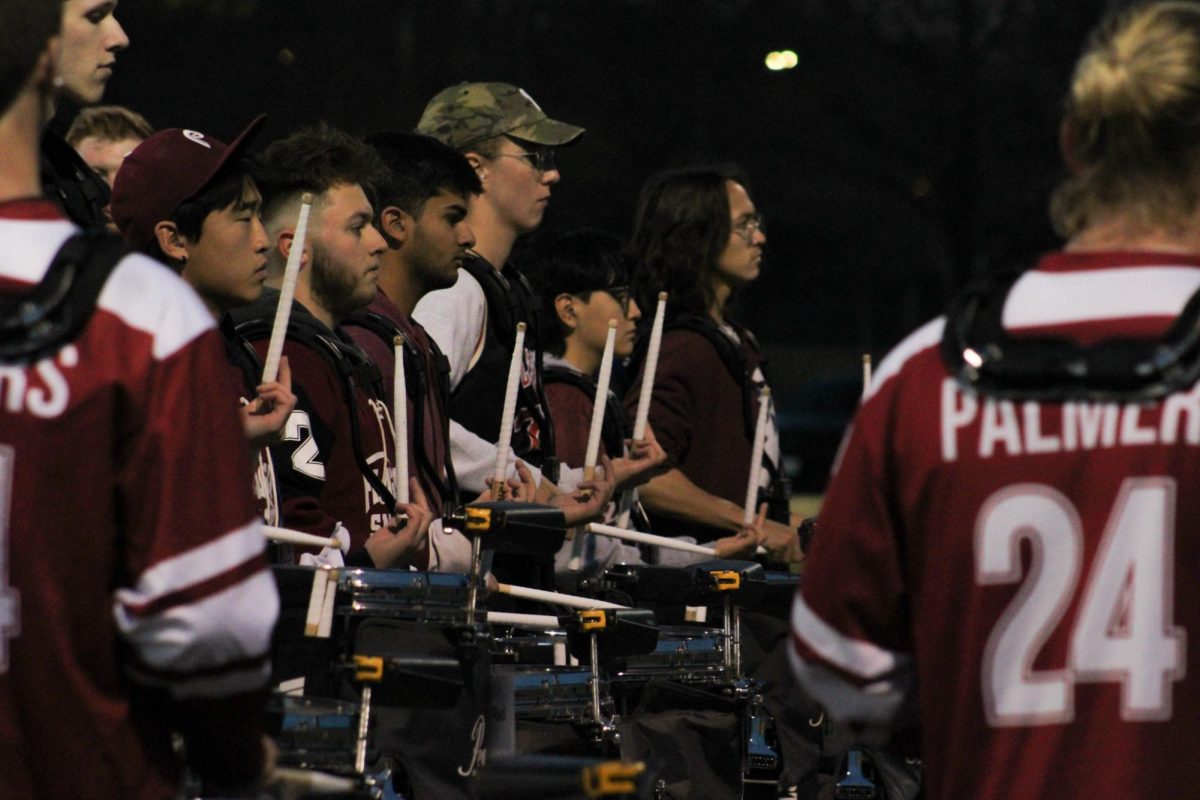
The electronic duo Disclosure’s newest record, Caracal, can best be described in five words.
“Smoke and sunset off Mulholland,” guest vocalist Lorde mutters on “Magnets,” one of the album’s highlights.
The song is referring to Mulholland Drive, one of Los Angeles’ most famous roads. It’s one of the most recognizable cultural landmarks in the city, and anchors an album which tries its best to capture Hollywood’s big city feel.
Starting off as a blurred inconspicuous twilight, “Caracal” transitions into a realm of adrenaline and tantalization, and ends with an exhausted yet smooth finish. Ranging from Sam Smith, to The Weeknd, nearly the entire album offers cameos of the world’s biggest R&B, electronic and pop singers.
Disclosure dives headfirst into this alluring, star-studded world to create “Caracal.”
The album begins with “Nocturnal” and the lyrics – “Streetlights, turn on one by one/My hope is, descending like the sun” – immediately paint the setting as dim and hopeless. Both The Weeknd’s Abęl Tesfaye and Disclosure’s Guy and Howard Lawrence, create feelings of displacement and uncomfortable longing.
The lyrics “Why can’t I find peace, when a caracal could sleep tonight?” Create a certain restlessness that feels all too familiar a restlessness that brings the audience in. Acting as a sort of prelude for the remainder of “Caracal,” it may make the listener feel nocturnal themselves.
The four tracks that follow “Nocturnal” all set the tone for “Caracal,” and closely resemble Disclosure’s previous LP “Settle.” All four are distinct dance tracks that all resemble electrified, accelerated thoughts in different ways. Yet the darkness that constantly encapsulates the album never seems to fade.
Each track reflects on the past, and accepting and emulating these periods of darkness. Each hit is seamless, while the production of these edgy, indecisive and thrilled tunes ultimately builds up to the two most powerful tracks of the entire album; “Magnets” and “Jaded.”
“Magnets,” featuring lead vocals from Lorde, is the best representation of the album’s sound, and its best track. Starting off with a simple beat, the song then moves to synthesizers that slowly build alongside Lorde’s staccato, breathy vocals and lead up to a smooth, alluring apex.
The provocative, mysterious track is filled with lust. Lorde’s vocals flow flawlessly, carrying these lamentations of love and heartbreak with the shadowy quality that is present throughout the record. The song ends with the repetition of the same seven words, “Let’s embrace the point of no return.”
By this point, the listener is at the midpoint of the album. They have fully immersed themselves in this dreary Hollywood joyride, and are probably fully prepared for the album’s climax.
“Jaded” is as powerful as it is loud and demanding, condemning a lover and a past relationship. The song criticizes the lover in question for lying, wasting time and for being, above all, “jaded.” It is executed perfectly, with blaring vocals accompanied by a mixture of beats and synthesizers, both of which nearly attack the listener.
Soon after “Jaded” though, the album begins to slow down, as the remaining four songs feel less adrenaline filled and more spacey and airy. It is the end of the album’s initial high-speed ride, and shifts the album’s gears into a relaxing cruise, exploring the last bits of a reflective evening. By the end of the album it reaches this groggy stroll, and slowly sizzles out as the album finishes its journey.
While the original version of “Caracal” never feels out of place, the deluxe version feels overdone and tired by its conclusion. “Bang That,” a track featured on the iTunes deluxe edition, feels so out of place and overproduced that there it really has no place on the album. The track is so alien that, an hour in, it almost manages to steer the album in a new direction entirely.
In the end, the deluxe version offers nothing but out of place, uninspiring music that has no place on the record itself. Thought the material might work as part of an EP, it deserves no part in the masterpiece that is “Caracal.”
Each track on the album laments on the past – relationships, lives and pretty much anything that has gone wrong. The album is a reflection on the late night thoughts any person has, falling into habits of lingering too long on the past and eventually getting stuck in pessimism.
“Caracal” conveys this mood effectively, and never leaves sight on what it is trying to accomplish. All of these tracks feel like they are part of this one single story, this one ride through Los Angeles’ Mulholland Drive. Lyrically, and musically, it takes the audience away and allows them to reflect on their past, their relationships and revel in the dark atmospheres of “Caracal.”
Troy Kowalchuk can be reached at [email protected]


















